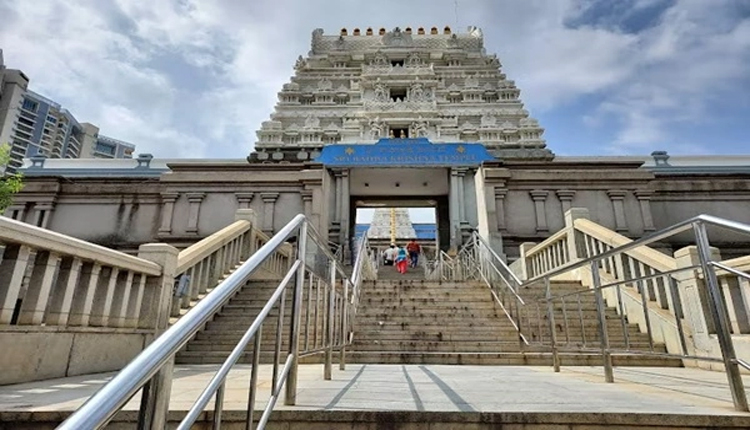New Delhi: The International Society for Krishna Consciousness (ISKCON) delivers spiritual guidance to India through its Hare Krishna movement while people remain intrigued about its beginning and financial operations. In 1966, A.C. Bhaktivedanta Swami Prabhupada established ISKCON in New York before bringing Krishna devotion to India through temples, book distribution, and food service in the early 1970s. People wonder about two things concerning ISKCON temple financial matters: does the organisation follow income tax regulations and who receives the temple revenue benefits?
Before India, Prabhupada carried Gaudiya Vaishnavism west to establish the first major ISKCON temple at Juhu, Mumbai, in 1978. Currently India has the greatest number of ISKCON temples worldwide while maintaining the highest concentration of these spiritual centres throughout its territory, particularly in Mayapur, Vrindavan, and Bangalore. The temples welcome numerous visitors who receive complimentary nourishment and can access spiritual lectures and Bhagavad Gita teachings. A movement benefiting from Indian diaspora backing has brought back Krishna worship yet maintains unclear financial operations.
ISKCON temples operate through the income received from donation-based systems along with book marketing and restaurant services from Govinda’s, along with cultural event initiatives. Firstpost reported in 2016 that Indian temples generate hundreds of crores annually, but the exact amounts remain undisclosed. IOUS trusts like ISKCON benefit from tax exemptions under the Income Tax Act of 1961, Section 11, by which they support their charitable programme, Akshaya Patra Foundation, which provides food to millions of students. Only when the organisation registers under Section 12AA do commercial transactions in merchandise and property rentals become taxable. The temples exist autonomously and handle their funding independently since Prabhupada established this policy.
Swami Swaroopanand Saraswati raised allegations related to money laundering in ISKCON in 2016 because the temple directed funds to overseas accounts. The allegations lack verification because ISKCON officially refutes them while focusing on its world-wide charitable initiatives. The income of individual temples goes toward temple upkeep alongside festival expenses and local community projects even though some groups demand more stringent oversight. Public financial reports about ISKCON remain unavailable, which intensifies public doubt, even though no credible evidence exists that the organisation’s money ends up in government or foreign hands.
While ISKCON maintains inspiring mission work, its tax exemption status along with financial usage continues to spark questions from the public. The dedications to “Hare Krishna” become increasingly louder among devotees.



Comments are closed.